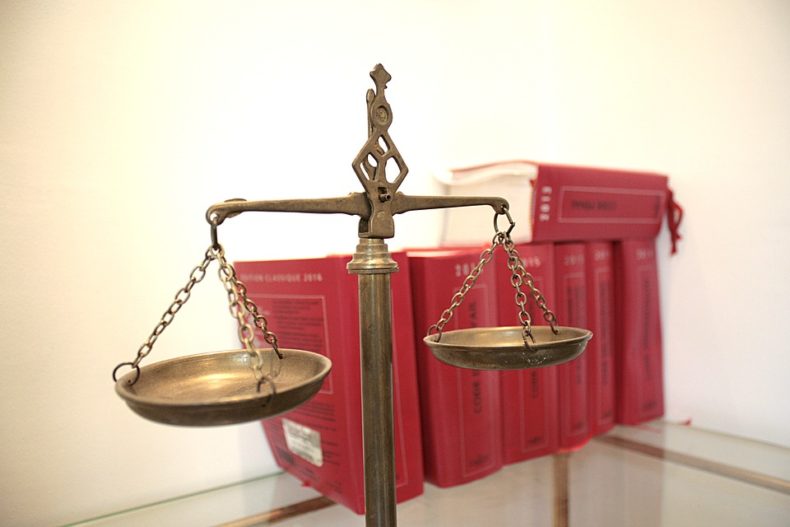The Canadian Charter of Rights and Freedoms gives everyone charged with a criminal offence the right to be tried within a reasonable time. The rational for this right is based on both individual interests and societal interests. The individual interests include (1) minimizing the anxiety and stigma of criminal proceedings; (2) minimizing the effect of pre-trial custody or restrictive bail conditions; and, (3) ensuring that the proceedings occur while evidence is fresh and available. Societal interests include (1) ensuring the accused is dealt with fairly, and (2) having laws enforced against those who break the law in a timely manner.
In R. v. Jordan, 2016 SCC 27, the Supreme Court of Canada outlined the legal framework to be applied when assessing delay pursuant to section 11(b) of the Charter. At paragraph 105, the Court summarized the legal framework to be applied:
- There is a ceiling beyond which delay becomes presumptively unreasonable. The presumptive ceiling is 18 months for cases tried in the provincial court, and 30 months for cases in the superior court (or cases tried in the provincial court after a preliminary inquiry). Defence delay does not count towards the presumptive ceiling.
- Once the presumptive ceiling is exceeded, the burden shifts to the Crown to rebut the presumption of unreasonableness on the basis of exceptional circumstances. Exceptional circumstances lie outside the Crown’s control in that (1) they are reasonably unforeseen or reasonably unavoidable, and (2) they cannot reasonably be remedied. If the exceptional circumstance relates to a discrete event, the delay reasonably attributable to that event is subtracted. If the exceptional circumstance arises from the case’s complexity, the delay is reasonable.
- Below the presumptive ceiling, in clear cases, the defence may show that the delay is unreasonable. To do so, the defence must establish two things: (1) it took meaningful steps that demonstrate a sustained effort to expedite the proceedings; and (2) the case took markedly longer than it reasonably should have.
The Breakdown of the Analysis for Trial within a Reasonable Time
The relevant time period to be considered for the purposes of ascertaining the reasonableness of the delay begins with the date the information is sworn, not the date of the arrest, and continues until the completion of the trial. Once calculated, defence delay is then subtracted from the total delay.
Defence delay has two components: (1) the delay unequivocally waived by the defence; and (2) delay caused solely by the conduct of the defence. Delay waived by the defence can be explicit or implicit, but in either case, it must be clear and unequivocal. Delay attributable to the defence can arise outside of actions legitimately taken to respond to the charges or where their is evidence defence counsel acted unreasonably in refusing preliminary inquiry date or trial dates.
If at this point of the analysis the delay is beyond the presumptive ceiling, the Crown Attorney will need to justify the delay on the basis of exceptional circumstances. Generally exceptional circumstances will fall under two categories: (1) discrete events, and (2) particularly complex cases. With respect to this first category of exceptional circumstances, the Court in Jordan points to examples, such as: (1) medical or family emergencies; (2) an international dimension, for instance cases requiring extradition of an accused from a foreign jurisdiction; and, (3) unforeseeable or unavoidable events at trial, such as a complainant recanting or a trial going longer than reasonably expected. This is not a closed list of examples and the court will have to determine if other circumstance qualify on a case to case basis.
In looking at the complexity of the case, the court takes a holistic approach. The court not only examines the volume of evidence, but the steps the Crown Attorney took in planning their prosecution and in stream lining the proceedings. Where the Crown Attorney fails to properly manage the case, they will be unable to rely upon the complexity of the case to excuse the delay.
Delay caused by discrete events are then subtracted for the purpose of determining whether the presumptive ceiling has been reached. If the remaining delay exceeds the presumptive ceiling, the court should enter a stay of proceedings on the charges. If the remaining delay falls below the presumptive ceiling, the onus is on the defence to demonstrate that the delay is unreasonable.
Conclusion
Ultimately, if the total delay from the charge to the actual or anticipated end of trial, less the delay caused by the defence, exceeds the ceiling stipulated in Jordan, then the delay is presumptively unreasonable. To rebut this presumption, the Crown Attorney must establish the presence of exceptional circumstances. If the Crown cannot do this, then the delay is unreasonable and a stay of proceedings must follow. Overall, the Court must look at the circumstances of the particular case at hand in assessing the reasonableness of the delay.
When facing criminal charges it’s important to have a lawyer who has knowledge of the Charter of Rights and Freedoms in order to enable him or her to assess possible legal issues that may arise during your case. If you have been charged with a criminal offence, please do not hesitate to contact me for a free initial consultation. I will be be glad to assist you.

